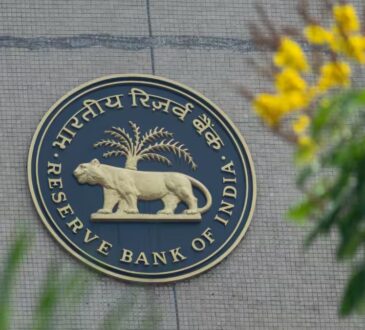(Bloomberg) — After years of coming second to popular Latin American carry trades, Asian currencies are finding their cheapness has become an asset as traders seek to capitalize on the dollar’s eroding premium status.
Currencies like South Korea’s won, the Indonesian rupiah, and the Indian rupee rank among the most undervalued in emerging markets relative to their historic average, according to data compiled by Bloomberg. Beyond attractive valuations, fresh economic stimulus in China and signs of progress in US-Asia trade negotiations are adding to the region’s allure.
The potential for Asian currencies to strengthen was on full display earlier this month, when a sharp surge in the Taiwanese dollar spread across the region. That helped the cohort catch up with their developed and emerging-market peers, which had been outperforming following the dollar’s decline after US President Donald Trump’s early-April tariff announcement.
“On a fundamental basis, it’s been cheap for a long time,” said Claudia Calich, head of EM debt at M&G Investment Management, adding that investors including herself had been underinvested in Asia thanks to higher carry opportunities in Latin America. “It’s finally started correcting a little, but even then it’s still relatively cheap.”
Korea’s won, which plummeted last month in response to Trump’s barrage of “reciprocal” tariffs, is a prime candidate for further gains, according to Goldman Sachs Group Inc. and Barclays Plc.
Goldman strategists — who looked at the extent of undervaluation, possible conversion of dollar assets, and the role of the yuan — for their picks, also expect Malaysia’s ringgit and the South African rand to appreciate. Barclays analysts see significant scope for gains in the Singapore and Taiwanese dollars too.
Sentiment toward Asia’s depressed currencies has already improved, as concerns about Trump’s policies tarnish the appeal of the dollar and trade-deal hopes improve appetite toward EM assets.
A Bloomberg index of Asian currencies has gained around 3% since its low in April. Global funds have been snapping up local currency bonds in Indonesia, Thailand and South Korea this month, according to data compiled by Bloomberg. Selling pressure on the greenback has been so strong that Hong Kong’s monetary authority was forced to intervene to maintain its peg.
While many market watchers expect a degree of appreciation in Asian currencies, whether the gains will last beyond catch-up moves remains to be seen.
The relative stability of the yuan as a managed currency can be a double-edged sword in that it can reduce volatile swings across Asia but also cap rapid gains. Beijing has signaled that it’s not ready to let the yuan strengthen dramatically against the US currency.
The dollar has regained some ground last week as Federal Reserve Chair Jerome Powell signaled the central bank is not in a hurry to adjust interest rates. That’s led to many Asian currencies paring some of their earlier gains.
“I don’t think we’re necessarily in the global growth environment now where Asian currencies are going to meaningfully outperform,” said Grant Webster, co-head of EM sovereign debt and currencies at Ninety One in London.
Still, the dominance of the dollar has been so ingrained in investors’ mindset that a dent in that perception has been enough to create wild swings. Investors have no option but to prepare for future episodes like the Taiwanese dollar’s epic surge.
When scouting for potential winners, “the focus is on the ones that haven’t” gained much yet, said Dominic Schnider, head of global FX and commodities at the chief investment office of UBS Group AG’s wealth management unit. In emerging Asia, “some of these currencies just from a valuation angle do look cheap.”
Key events to watch this week:
- Trade and geopolitics will be at the forefront following US-China trade talks in Switzerland over the weekend. Trump is due to visit to Saudi Arabia, Qatar and United Arab Emirates. Brazil’s President Luiz Inácio Lula da Silva is expected to meet with his Chinese counterpart Xi Jinping on the sidelines of the China-CELAC summit
- Trade data in India and Indonesia will be parsed for signs of the impact of US tariffs. GDP figures for Malaysia and Poland are also due
- Mexico’s central bank is expected to lower its policy rate. Inflation data for India, Argentina, Bulgaria and Poland will provides investors with fresh clues on the path of monetary policy in those countries
- Assets in India and Pakistan will be in focus after the two nations agreed to a full and immediate ceasefire, though each soon accused the other of violating the truce
–With assistance from Mark Cranfield, Mary Nicola and Selcuk Gokoluk.
©2025 Bloomberg L.P.





